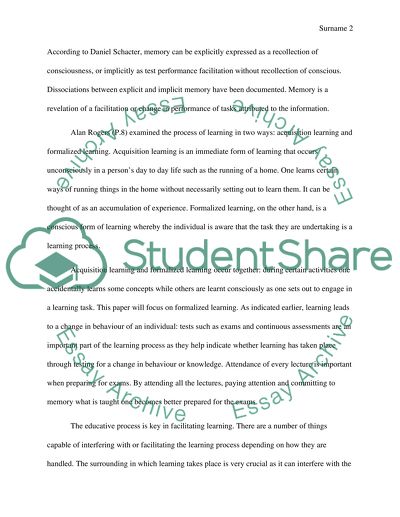Cite this document
(“Cognitive Process Required When Preparing for the Examination Essay”, n.d.)
Retrieved from https://studentshare.org/psychology/1632981-describe-the-cognitive-processes-required-when-preparing-for-examinations
Retrieved from https://studentshare.org/psychology/1632981-describe-the-cognitive-processes-required-when-preparing-for-examinations
(Cognitive Process Required When Preparing for the Examination Essay)
https://studentshare.org/psychology/1632981-describe-the-cognitive-processes-required-when-preparing-for-examinations.
https://studentshare.org/psychology/1632981-describe-the-cognitive-processes-required-when-preparing-for-examinations.
“Cognitive Process Required When Preparing for the Examination Essay”, n.d. https://studentshare.org/psychology/1632981-describe-the-cognitive-processes-required-when-preparing-for-examinations.


